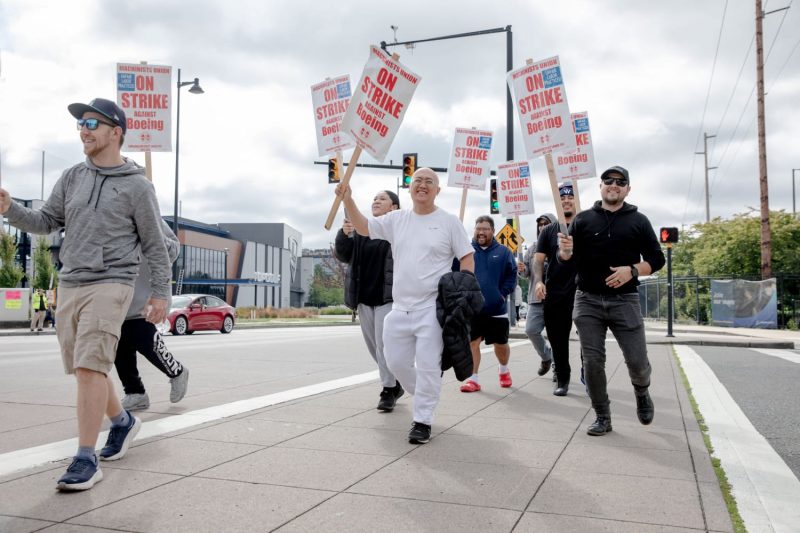Boeing Commences Furloughs as Tens of Thousands of Employees Are Affected
The recent development at Boeing has brought forth a wave of uncertainty as the aerospace giant has started the process of furloughing tens of thousands of employees amidst an ongoing machinist strike. This move has significant implications not only for the affected workers but also for the broader aviation industry and the economy at large.
The machinist strike, which stems from disputes over wages and working conditions, has forced Boeing to make the difficult decision to implement furloughs as a measure to mitigate the financial impact of the ongoing labor unrest. As a result, many employees are facing the prospect of being placed on unpaid leave, adding to the challenges they are already confronting due to the strike.
The repercussions of Boeing’s decision to furlough a substantial number of its workforce are far-reaching. Firstly, it underscores the fragile nature of labor relations in the aviation sector and highlights the inherent tensions between management and labor. The machinist strike, coupled with the ensuing furloughs, serves as a stark reminder of the potential disruptions that labor disputes can cause to operations within a critical industry.
Furthermore, the furloughs have practical implications for the affected employees, many of whom may be grappling with financial insecurities as a result of the sudden loss of income. The uncertainty surrounding the duration of the furloughs only adds to the stress and anxiety experienced by these workers and their families, underscoring the human toll of labor conflicts in corporate environments.
In addition to the immediate impact on employees, the furloughs at Boeing have broader implications for the company’s operations and the aviation industry as a whole. The reduction in workforce capacity resulting from the furloughs could potentially disrupt production schedules, delay deliveries, and impact the company’s ability to meet contractual obligations with its customers. This, in turn, could have ripple effects throughout the supply chain and the broader economy, given Boeing’s status as a major player in the aerospace industry.
As Boeing navigates through this challenging period marked by labor unrest and furloughs, it is crucial for all stakeholders involved to prioritize dialogue, transparency, and mutual respect in order to find a sustainable resolution to the issues at hand. Finding a common ground that addresses the concerns of both management and labor is essential to restoring stability and ensuring the long-term success of the company and the well-being of its employees.
Overall, the furloughs at Boeing serve as a sobering reminder of the complex dynamics that underpin labor relations in the aviation industry and the importance of proactive communication and collaboration in resolving conflicts. As the company grapples with the immediate fallout of the machinist strike and the ensuing furloughs, it is imperative for all parties involved to work towards a constructive resolution that prioritizes the interests of employees, the company, and the industry as a whole.


























